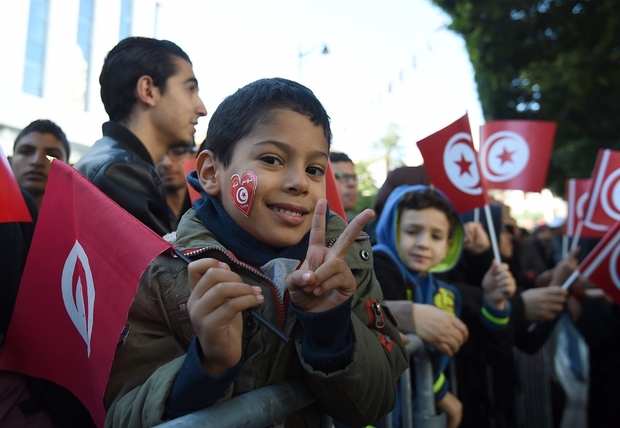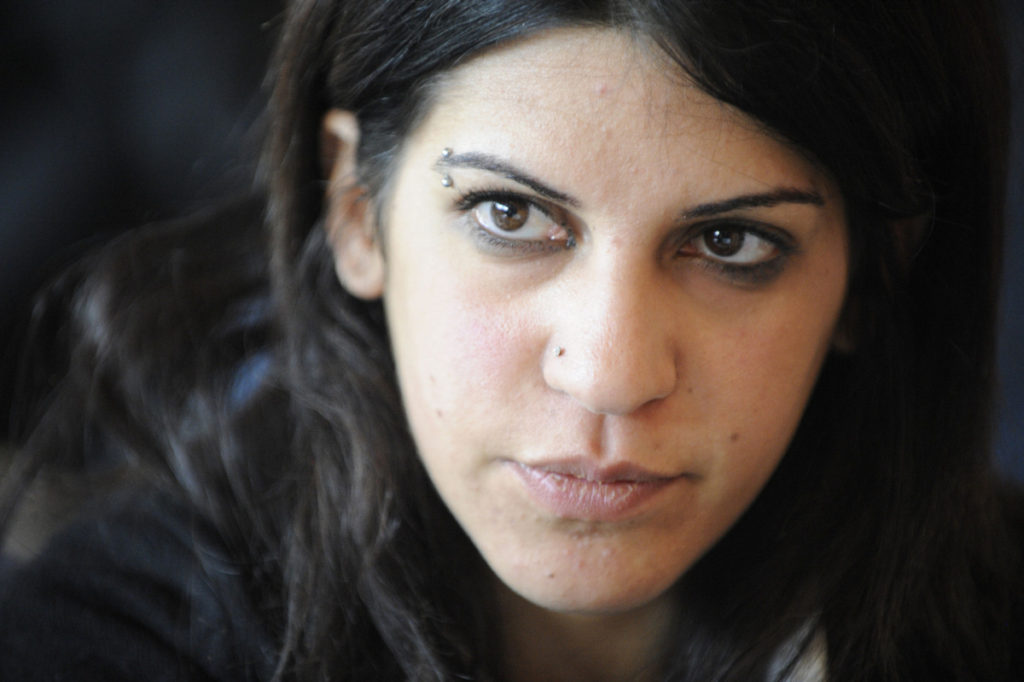Technology and the Tunisian Revolution with Lina Ben Mhenni

A look at the intersection of technology and revolutionary change, with a conversation between Lina Ben Mhenni, a Tunisian blogger who rose to prominence during the Tunisian revolution of 2011, who was nominated for the Nobel peace prize, and POCIT's own Zara Tewolde-Berhan.
What inspired you to get into cyber blogging and activism?
I started blogging in 2007; my country was living under a dictatorship and internet and blogs, social media had been the unique medium for me to express myself, it was a space for me to express myself and give a voice to the voiceless people. Since I was a child, I used to write different texts about social and political problems in Tunisia, but I used to keep for myself it was not possible to publish in Tunisia. So the internet was the only medium to do that.
What was your experience using cyber activism and blogging?
It has been an efficient tool against censorship, and dictatorship. As I said I started blogging in 20017 and slowly I began to take part in different online actions against censorship. Efforts to support opinion prisoners and the internet and cyber activism were helpful in doing that cyber-activism had been for us the means that allowed us to show what was happening in Tunisia. It enabled us to get rid of a dictator, so we shared with the whole world what happened here in Tunisia.
How would you describe the role of the internet in the Tunisian revolution?
Of course, I am against the saying that it was an internet revolution. Let me say that internet had been an efficient tool during the Tunisian revolution. I played two important roles. The first was informing people about what was happening. It’s worth mentioning that under the regime of Ben Ali most the media was under the control of the regime; even foreign journalists couldn’t access the country to cover the events in Tunisia. The internet allowed that, so people were informed about what was happening here thanks to the web.
The second important role was mobilizing people, many of the demonstrations that had been organized during the revolution were announced on Facebook and Twitter. It helped us to spread the word about different actions and protests, and this was important.
You said you disagree with the Tunisian revolution being referred to as ‘The Internet Revolution.’ What term do you think best represents the revolution?
Here we prefer to call it a dignité revolution. It’s true that the internet played a significant role and helped to escalate things. But let me say that the revolution was also made by those people and especially young people, who took to the streets and faced tear gas and real bullets with their bare chest. We had 300 martyrs and several wounded, hundreds of thousands took to the streets. I think those people made the revolution. It’s true that information and the internet are important but being on the ground is crucial for a revolution. Some people here in Tunisia think that change can occur just by clicking like on the internet. I believe you have to be active on the ground. And of course, join actions on the field with the action on the web.
What gave you the courage to write using your name and not a pen name?
I have that in my blood I inherited that, my parents were both politically engaged. My father is an ex-political prisoner. I grew up in an environment where it was normal to criticize the regime. We had several meetings with the dissidents of the regime. When I decided to start my blog, I didn’t even think about it; I decided to use my real name. I was there to express myself, so I had to show my face and real name. I took part in the organization of several demonstrations against censorship and for freedom. To convince people, I had to be in the streets with them. They need to see your face and know your real name. So, it was perfectly okay for me I didn’t even think about it. To win the trust of people you have to be courageous and to be there with them using your real name and showing your face.
In the Guardian, you were quoted as saying “Action in the digital world must be combined with actions in the real world.” Can you elaborate on that?
We have people just clicking like on Facebook and believe they can change the world like that. It’s true that it is important to show the world on the internet that you are supporting a cause. But it’s also important to combine that with action. For example, I started an initiative to collect books and create libraries inside prisons to fight against extremism and promote the culture of human rights. I started this effort on the internet and announced it on the web. But I’m also collecting books, meeting people to talk about the initiative and visiting prisons to give books. It’s not just about social media; you need action to go with it. I don’t think things can change on the internet alone. I believe that if Tunisians just used social media without going to the streets, we wouldn’t have succeeded, being on the ground is important.
Are there any tips you would give to anybody interested in cyber blogging and activism?
I received many messages from young people, asking me for tips to launch a revolution using the internet. I think there is no recipe for making a revolution. Each country has its characteristics. I would say just believe in your principles and what you do. Write what you feel and do it with love and patience. It’s true that the internet is important, but you also have to be on the ground and meet people, convince people of your opinions peacefully. Love and patience are crucial; it’s about love and patience.
Any future projects to look out for?
I mentioned about my initiative earlier about collecting books to prisons; I launched it on social media. My partners and I organized training for the prisons to take care of the libraries and attract the prisoners to read. I launched this initiative through social media and people have sent books. I’m planning to do this in all the prisons in the country. I’m also planning to organize workshops for prisoners in collective reading and writing and publish a book with the writings of detainees. This is one of my projects, and I’m using the internet to promote it. I collected more than 20,000 books through social media and the internet. I’m still working as a blogger as I did during the revolution, still trying to report the different events happening in Tunisia. It’s true that we are talking about the revolution as a success but the reality on the ground is different. We have insecurity, terrorism, and economic problems. So I’m still using social media and my experience of cyber activism to denounce injustice and show what’s happening in Tunisia is critical to me.




